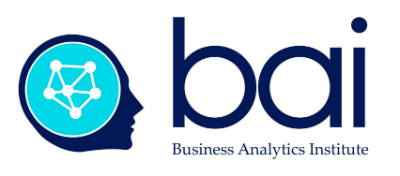
What do we need to know about people to manage communities?
Technology has long influenced our participation in social and economic communities, and largely contributed to what it means to be social. The automobile, the airplane, the telephone have each extended the boundaries of how we engage with our personal and professional networks. Internet technologies are no exception, for social media, text and video-messaging have impacted our perceptions the depth and breadth of our social interaction. More importantly, and yet somewhat more subtly, these technologies have modified our notions of leadership, community, communication and sense-making. What do we need to know about people to effectively leverage community management platforms?
How do leaders use information technology effectively, and more important, how does IT support leadership in modern organizations? Leadership has traditionally been defined around a limited of number of universal characteristics that distinguish leaders across cultures and generations. Warren Bennis, for example, identified six qualities that set leaders apart in the crowd - integrity, dedication, magnanimity, humility, openness, and creativity.[1] Susan Annunzio, in studying the evolution of leadership, defined e-leadership as “fostering an attitude of speed and flexibility… to facilitate the internal transformation … for the new economy.”[2] David Snowden and Mary Boone took a different line of thought in suggesting that leadership today is tied to the nature of the problems that have been left for business to solve.[3] Manfred de Vries sums up the current debate on leadership in suggesting that leaders need to abandon traditional models of command, control and compartmentalization for one of interactions, information and innovation.[4]
To what extent does the quality of a network depend upon the soft skills of those who represent the community? The Community Roundtable publishes annual reports underlining the growing importance of community management in the public and private spheres. The most recent report insists on the importance of advocacy and engagement, in addition to technology, in building strong, sustainable communities. On one hand, the importance of the entrepreneurship in structuring the reach and depth of community involvement has been studied in depth long before the Internet became a household word.[5] On another, the influence of technology in shaping organizational patterns of interaction has been the focus of inquiry in actor-network theory.[6] Finally, complexity science has contributed substantially to our understanding of how messages and values are effectively communicated in social systems that characterize organizations, supply chains and markets.
Traditional and social media’s influence on perceptions of value is a fundamental key to understanding community management. The art of social CRM, evangelized by Paul Greenberg, postulates that perceptions of value are increasingly formed through community conversations rather than the actual use of organizational products or services.[7] Joseph Pine and James Gilmore take this argument one step further in insisting on the omnipotence of experience in modern economies – they argue that value today is directly associated with levels of consumer’s engagement in networks and organizations.[8] For his part, Arun Sundararajan argues that the genesis of the sharing economy will redefine the nature of economic markets in privileging peer-to-peer exchanges of information, services and goods.[9] In such a scenario, social, political or economic value depends upon information technologies’ ability to amplify meaning, culture and trust.
How does IT highlight these social constructs that are at the very foundation of community building? If value, trust and truth are only partially reflected in the data, they are contextualized and amplified in “stories” communicated through networks. In the past, Vladimir Propp and Claude Lévi-Strauss underlined the importance of narrative functions and structures in defining and amplifying cultural values. Marshall Ganz, in his writings and workshops today, argues that stories of “self”, of “us” and of “now” teach us not only community values but inspire us to act.[10] Nancy Duarte, in Resonate, addresses the fundamental issue of crafting messages that will echo in specific communities.[11] Finally, Cole Nussbaumer Knaflic, who actually taught communications at Google, evangelizes the particular case of storytelling by the numbers.[12]
Communities are playing an ever increasing role in both organizations and markets. Information technology in general and community platforms in particular, are nothing more than perfectible mirrors of ourselves and our interactions in society. Effective community managers need to come to grips with how technology has influenced our notions of leadership, community, value and sense-making. These topics, at the heart of our Executive Education offer on community management, will be addressed in turn in our future posts.
[1] Bennis, W. and Goldsmith, J. (2003). Learning to lead. New York: Basic Books.
[2] Annunzio, S. (2002). Evolutionary leadership. New York.
[3] David J. Snowden, Mary E. Boone A Leader's Framework for Decision Making. Harvard Business Review, November 2007, pp. 69–76
[4] Kets de Vries, M. (2011). Reflections on groups and organizations. San Francisco, CA: Jossey-Bass.
[5] Among others, see Robert H. Salisbury, An Exchange Theory of Interest Groups. Robert H. Salisbury. Midwest Journal of Political Science, Vol. 13, No. 1 (Feb., 1969),pp. 1-32.
[6] Law, J. (1992) ‘Notes on the Theory of the Actor-Network: Ordering, Strategy and Heterogeneity’, Systems Practice, 5 (1992), 379-93
[7] Greenberg, P. (2004). CRM at the speed of light. New York: McGraw-Hill/Osborne.
[8] Pine, B. and Gilmore, J. (1999). The experience economy. Boston: Harvard Business School Press.
[9] Sundararajan, A. (2016). The sharing economy: The End of Employment and the Rise of Crowd-Based Capitalism. MIT Press
[10] Ganz, M., (2007). Telling your public story: Self, us, now. Kennedy School of Government, Boston, MA
[11] Duarte, N. (2010). Resonate. Hoboken, N.J.: Wiley.

